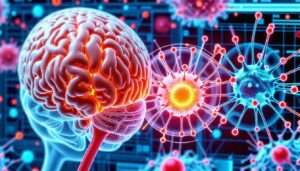As technology continues to advance, the field of medicine is also making significant strides in the way it approaches healthcare. Artificial intelligence (AI) is revolutionizing the way the medical industry provides treatment by allowing for a more personalized and targeted approach to patient care. Gone are the days of one-size-fits-all treatment plans; with the help of AI, personalized medicine is becoming not only a possibility but a reality for many. In this blog post, we will explore the significant impact of AI on personalized medicine, and how it is transforming the way you receive care, from early detection to treatment options tailored specifically to your needs. You will discover the potential benefits and risks associated with this revolutionary approach to healthcare, and gain a clearer understanding of how AI is shaping the future of personalized medicine.
Key Takeaways:
- AI-driven precision: AI has the potential to significantly advance personalized medicine by analyzing large sets of data to predict individual responses to treatment.
- Improved patient outcomes: AI can help tailor medical treatments to individual patients, leading to better efficacy and reduced side effects.
- Challenges in implementation: While AI holds great promise, challenges in data privacy, regulation, and physician education must be addressed for successful integration into personalized medicine.
- Enhanced diagnostics: AI can support clinicians in accurately diagnosing diseases and identifying individual risk factors, enabling early intervention and prevention strategies.
- Empowering patient involvement: Personalized medicine supported by AI can give patients a more active role in their healthcare by providing them with tailored treatment plans and insights into their health.
Historical Development
One of the most significant impacts that AI has had on personalized medicine is the ability to analyze vast amounts of data to develop tailored treatment plans for individual patients. AI has revolutionized the field, allowing for the use of algorithms and machine learning to identify patterns and make predictions in health care. You can learn more about how AI is advancing personalized medicine in the article Ask a Caltech Expert: AI for Personalized Medicine.
Evolution of Personalized Medicine
Personalized medicine has evolved significantly over the years, moving from a one-size-fits-all approach to treatments based on individual genetic makeup, lifestyle, and environmental factors. This has allowed for more precise diagnoses and targeted therapies, improving patient outcomes and reducing the risk of adverse reactions to medications. The integration of AI has further enhanced this personalized approach, allowing for the analysis of complex data sets and the identification of treatment options tailored to your specific needs.
Milestones in AI Development
The development of AI has seen several milestones that have shaped its impact on personalized medicine. From the early use of machine learning algorithms to analyze genetic data to the more recent advancements in deep learning and natural language processing, AI has continuously improved its ability to understand and interpret health-related information. This has led to the development of personalized diagnosis and treatment recommendations that are based on a combination of clinical data, genetic information, and lifestyle factors, allowing for more accurate and effective medical interventions.
AI Technologies in Personalized Medicine
Some of the most significant advancements in personalized medicine have been driven by the integration of artificial intelligence (AI) technologies. These innovations have revolutionized the way in which healthcare professionals approach diagnosis, treatment, and drug development. In fact, a study published in Nature Biomedical Engineering demonstrates the potential of AI for precision medicine in various medical fields.
Big Data and Predictive Analytics
The integration of AI in personalized medicine has enabled the analysis of massive amounts of healthcare data, known as big data, to identify patterns and trends that can be indicative of disease risks and treatment outcomes. AI-powered predictive analytics can sift through your medical history, genetic makeup, lifestyle factors, and environmental influences to generate personalized predictions for your health. This can help healthcare professionals in developing tailored preventive measures and treatment plans to address your individual needs.
Machine Learning and Genomic Sequencing
Machine learning algorithms have significantly enhanced the analysis of genomic data, allowing for the identification of genetic variations associated with certain diseases and treatment responses. With AI, your genomic sequencing data can be efficiently processed to identify specific gene mutations or variations that may impact your susceptibility to diseases and guide the selection of personalized treatment options. This level of precision in genomic analysis is crucial in designing tailored medical interventions that are specific to your genetic makeup.
AI-Driven Diagnostic Tools
AI-powered diagnostic tools have the ability to interpret complex medical imaging and diagnostic tests with unprecedented accuracy and speed. By leveraging machine learning algorithms, these tools can analyze medical images, such as MRI scans and pathology slides, to identify subtle patterns and markers that could indicate specific health conditions. This can lead to early detection and precise diagnosis of diseases, empowering healthcare professionals to intervene at the earliest stages and improve your health outcomes.
Personalized Treatment Plans and Drug Development
AI technologies have revolutionized the process of developing personalized treatment plans by integrating vast amounts of patient data to guide healthcare decisions. By analyzing your unique biological and clinical characteristics, AI can assist in identifying the most effective treatment strategies for your specific condition. Furthermore, AI-driven drug development is accelerating the discovery of targeted therapies tailored to individual patients, offering new hope for more effective and personalized treatments for various diseases.
Overall, the integration of AI technologies in personalized medicine holds great promise in transforming healthcare by empowering healthcare professionals with data-driven insights for personalized care. However, it is important to stay informed about the potential limitations and ethical considerations surrounding the use of AI in healthcare. The potential risks and challenges must be carefully addressed to ensure that AI technologies are effectively utilized for the benefit of patients and the advancement of personalized medicine. Stay informed and actively engage in discussions about the responsible implementation of AI in personalized medicine to ensure that you receive the best possible care tailored to your individual needs.
Ethical and Legal Considerations
Unlike many other fields, the use of AI in personalized medicine presents unique ethical and legal considerations that must be carefully addressed. As AI algorithms become more advanced, the potential impact on patient privacy, data security, and the regulatory landscape has become a major point of concern for healthcare providers and policymakers alike.
Privacy Concerns in Personal Data Handling
As AI systems are designed to analyze vast amounts of personal health data, the issue of privacy becomes paramount. The integration of AI in personalized medicine raises concerns about how your personal health data is collected, stored, and shared. There is a risk that unauthorized access to this data could lead to breaches of your privacy, potentially resulting in harm or exploitation. It is crucial for healthcare organizations to implement robust data protection measures to safeguard your personal information from misuse or unauthorized access.
Regulations Governing AI in Healthcare
With the rapid advancement of AI in healthcare, regulatory frameworks have struggled to keep pace with the evolving technology. The lack of clear guidelines for the use of AI in personalized medicine raises questions about the accountability, transparency, and ethical considerations of these systems. It is essential for regulatory bodies to establish robust guidelines and standards for the development and use of AI in healthcare to ensure the safety and effectiveness of these technologies. Your healthcare providers must adhere to these regulations to ensure that AI-driven personalized medicine is implemented in a safe and ethical manner.
Case Studies and Real-World Applications
Now, let’s delve into real-world examples and case studies that showcase the impact of AI in personalized medicine. These case studies provide tangible proof of how AI technologies are revolutionizing personalized medicine and transforming the way we approach healthcare.
- One notable case study is the use of AI to analyze genomic data for cancer treatment. According to a study published in the Precision Medicine, AI, and the Future of Personalized Medicine, AI algorithms were able to identify specific genetic mutations in tumors that resulted in more effective targeted therapies. The result was a significant improvement in treatment outcomes and survival rates for patients.
- Another case study involved the use of AI in predicting drug responses based on an individual’s genetic makeup. This approach led to more precise medication selection and reduced the risk of adverse reactions, ultimately improving patient outcomes.
- Furthermore, AI has been utilized in analyzing large-scale clinical data to identify patterns and predict disease progression. By leveraging AI technologies, healthcare providers can identify potential health risks and intervene early, leading to better management of chronic conditions.
Success Stories in Personalized Therapies
One success story in personalized therapies involves the use of AI to develop custom-tailored treatment plans for patients with rare genetic diseases. By leveraging AI algorithms to analyze genetic and clinical data, healthcare providers were able to design targeted and effective therapies that significantly improved patient outcomes, demonstrating the potential of AI in personalized medicine.
Challenges and Lessons Learned
Despite the remarkable progress in the application of AI in personalized medicine, challenges have emerged. One of the key challenges is the interpretation and validation of AI-generated insights to ensure their clinical relevance and safety. Additionally, the integration of AI technologies into existing healthcare systems requires careful consideration of data privacy and security concerns, as well as the need for ongoing monitoring and evaluation of AI-based interventions to optimize their impact.
Future Directions
Despite the advancements made in personalized medicine through AI, the future holds even more potential for groundbreaking innovations. From improving diagnostics to developing targeted therapies, the trajectory of personalized medicine is set to revolutionize the healthcare industry.
Innovations on the Horizon
One of the most exciting prospects on the horizon is the development of AI-driven virtual assistants that can analyze your health data in real-time and provide personalized recommendations for wellness and treatment. Imagine having a virtual health coach that can tailor its advice based on your specific genetic makeup, lifestyle, and medical history. This could significantly improve preventive care and help you make informed decisions about your health.
The Role of AI in Advancing Personalized Medicine
The role of AI in advancing personalized medicine cannot be overstated. AI algorithms have the potential to analyze massive amounts of medical data, including genetic information, medical images, and clinical records, to identify patterns and make predictions that can guide personalized treatment plans. This means that you could receive a treatment plan that is specifically tailored to your unique genetic profile and health history, increasing the likelihood of successful outcomes and minimizing the risk of adverse effects.
Importantly, AI also has the potential to assist in the discovery of new drug targets and the development of innovative therapies that are tailored to individual patients. This could lead to more effective treatments with fewer side effects, ultimately improving the quality of care and your overall health outcomes.
The Impact of AI on Personalized Medicine
The integration of AI in the field of personalized medicine has revolutionized the way medical treatment and care are approached. By analyzing large data sets and identifying patterns, AI has paved the way for more accurate and tailored treatment plans for individuals. Your personal medical history, genetic makeup, and individual response to treatment can now be taken into account when developing a personalized approach to your health. Furthermore, AI has enabled the discovery of new potential drug candidates and therapeutic targets, leading to the development of more effective and targeted treatment options. As AI continues to advance and become more integrated into healthcare, the future of personalized medicine looks promising and is expected to greatly improve patient outcomes and the overall healthcare experience.
FAQ
Q: What is personalized medicine?
A: Personalized medicine is a medical approach that takes into account an individual’s genetic make-up, lifestyle, and environment to tailor treatment and prevention strategies specific to their unique characteristics.
Q: What is AI?
A: AI, or Artificial Intelligence, refers to the simulation of human intelligence processes by computer systems. AI technologies have the ability to analyze large amounts of data, identify patterns, and make predictions, which makes them valuable in the field of personalized medicine.
Q: How does AI impact personalized medicine?
A: AI plays a crucial role in personalized medicine by analyzing vast amounts of patient data and identifying patterns that can lead to more accurate diagnoses, targeted treatments, and personalized prevention strategies.
Q: What are some examples of AI applications in personalized medicine?
A: AI is used in personalized medicine to analyze genomic data, identify biomarkers for disease progression, predict drug responses, and develop personalized treatment plans for patients based on their unique genetic and molecular profiles.
Q: What are the future implications of AI on personalized medicine?
A: The future implications of AI on personalized medicine include advancements in precision medicine, improved patient outcomes, reduced healthcare costs, and the development of innovative medical technologies and therapies tailored to individual patients.




